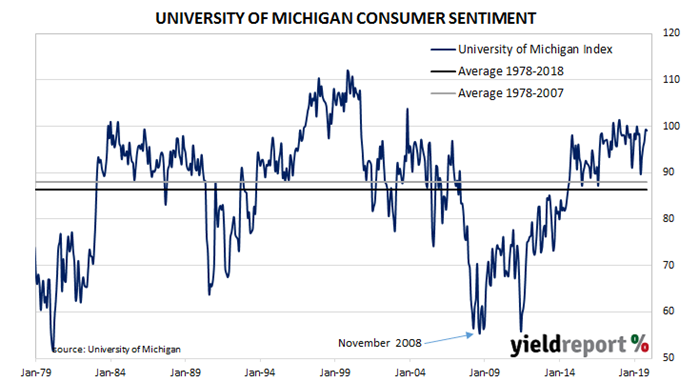US consumer confidence started 2019 at well above average levels in a longer-term context, although readings were markedly lower than those which had been typical of most of the previous year. Since then, surveys have generally indicated US households maintained historically-high levels of confidence except for two short-lived plunges; one at the very start of the year and one in August.
The latest survey conducted by the University of Michigan indicates the average confidence level of US households has stopped rising after four consecutive months in which sentiment had improved. The University’s preliminary reading from its Index of Consumer Sentiment slipped from December’s final figure of 99.3 to 99.1 in January, just under the consensus figure of 99.2.
The University’s Surveys of Consumers chief economist, Richard Curtin, said, “Consumer sentiment remained virtually unchanged in early January, differing by just 0.2 index points from December. This stability extended to all components, both current assessments as well as future economic prospects.”
The report came on the same day as JOLTS figures and industrial production figures were released and bond yields eased at the short end. By the close of trade, the 2-year Treasury yield was 2bps lower at 1.56% while the 10-year yield had inched up 1bp to 1.82 and the 30-year yield had gained 2bps to 2.28%.

